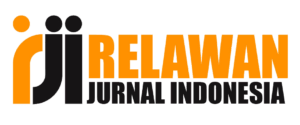Personalized English Language Enhancement: Teaching ESP in the Post Covid Era
Abstract
COVID-19 pandemic has raised challenges for the higher education community worldwide. Of the most fundamental challenges in teaching English as a Foreign Language (EFL) during the pandemic, it is to ensure that the learning is meaningful. Online teaching and learning imply pedagogical content knowledge, mainly related to organizing and designing a better learning environment, with the help of digital technology. In this study, we provide insights into this online learning-related pedagogical content knowledge, with the goal of helping novice English language learners to navigate in this challenging time. Particularly, through a Personalised Autonomous (PA) Model approach, we conducted action research through developing a new approach to language learning and running the course during a semester in the early to mid-2020 towards 97 students. Our qualitative analysis of the samples showed that the personalized teaching model provides a unique opportunity whereby the students could address their own language learning needs to their own satisfaction which in turn stimulated their positive emotions and self-confidence. The students, however, mentioned that they experienced difficulties in finding resources and setting their personal learning goals. Finally, this research recommends that personalized learning can be a solution to distance learning during the post-pandemic era.
References
Burns, A. (1998). Critical Questions in Action Research. In Teachers’ Voices Teaching Critical Literacy (Anne Burns and Susan Hood (ed.)). National Centre for English Language Teaching and Research. http://www.ameprc.mq.edu.au/__data /assets/pdf_file/0015/241530/Teachers_Voices_3.pdf
Byrnes, H. (2006). Advance Language Learning: The Contribution of Halliday and Vygotsky. Continuum. https://doi.org/https://doi.org/10.1080/13670050802149408
Dörnyei, Z, and U. (2009). Motivation, Language Identity and the L2 Self. Multilingual Matters. https://books.google.co.id/books?id=59fl2aQLSBsC
Emily Edwards and Peter Roger. (2015). Seeking out challenges to develop L2 self-confidence: A language learner’s journey to proficiency. TESEL-EJ, 18(4), 1–24. https://www.researchgate.net/publication/301546804_Seeking_out_challenges_to_develop_L2_self-confidence_A_language_learner’s_journey_to_proficiency
Garold Murray, X. G. and T. L. (2011). Identity, Motivation and Autonomy in Language Learning. Multilingual Matters. https://www.academia.edu/27862213/Gao_X_and_ Lamb_T_2011_Introduction_Exploring_links_between_identity_motivation_and_autonomy_in_Murray_G_Gao_X_and_Lamb_T_eds_2011_Identity_Motivation_and_Autonomy_in_Language_Learning_Bristol_Multilingual_Matters_1_8
Hulstijn, Jan H. Young, Richard F. Ortega, Lourdes Bigelow, Martha DeKeyser, Robert Ellis, Nick C. Lantolf, James P. Mackey, Alison And Talmy, S. (2014). Bridging the gap cognitive and social approaches to research in second language learning and teaching. Studies in Second Language Acquisition, 36(3), 361–421. https://doi.org/https:// doi.org/10.1017/S0272263114000035
Kim, M., Edwards., & Hall, R. (2021). A Personalised Autonomous Model for English Language Enhancement for International Students in Higher Education. University of Sydney Press.
Kim, M & Jing, B. (2019). A Personalised Autonomous Model for Enhancing Translation Students’ Linguistic Competence (M. K. & N. Froliger (ed.)). Cambridge Scholar Publishing. https://www.cambridgescholars.com/resources/pdfs/978-1-5275-3462-9-sample.pdf
Kim, M. (2005). Translator Education and Sustainability. Meta, 50(4), 1–13. https://doi.org/https://doi.org/10.7202/019868aradresse copiéeune
MESKELL, L. (2001). Archaeologies of identity. Polity Press. https://www.taylorfrancis.com /chapters/edit/10.4324/9780203965986-10/archaeologies-identity-lynn-meskell
Peter D. MacIntyre, Kimberly A. Noels, R. C. (1997). Biases in self-ratings of second language proficiency: The role of language anxiety. Language Learning, 47(2), 265–287. https://www.psych.ualberta.ca/~knoels/personal/Kim’s publications/MacIntyre NoelsClement1997.pdf
Rose, J. R. M. and D. (2008). Genre Relations: Mapping Culture. Equinox Pub. https://www.equinoxpub.com/home/genre-relations-mapping-culture-jr-martin-david-rose/
ROSS, A. S. (2015). From motivation to emotion: A new chapter in applied linguistic research. University of Sydney Papers in TESOL, 10(1), 1–27. https:// www.researchgate.net/publication/310516432_From_motivation_to_emotion_A_new_chapter_in_applied_linguistics_research
Swain, M. (2013). The inseparability of cognition and emotion in second language learning. Language Teaching, 46(2), 195–207. https://doi.org/https://doi.org/ 10.1017/S0261444811 000486
UNESCO. (2020). COVID-19 Educational Disruption and Response. https://en.unesco.org/ covid19/educationresponse
Vince, R. (2016). Emotion and learning. Journal of Management, 40(5), 538–544. https: //doi.org/https://doi.org/10.1177/1052562916643992

This work is licensed under a Creative Commons Attribution 4.0 International License.













